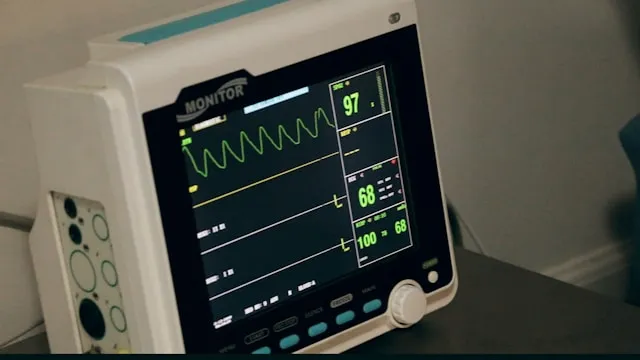When it comes to heart health, it is important to understand the differences between cardiac arrest, heart attack and stroke. While these conditions to a layman sound synonymous, they aren't since they require different treatments and can have different outcomes.
In this article, we will explore each condition's distinct characteristics, symptoms, and treatments available. Additionally, we will provide tips for preventing these conditions and maintaining a healthy heart.
Cardiac Arrest
You may observe a Cardiac arrest when the heart suddenly stops beating. Various factors, including abnormal heart rhythm or a heart attack, can cause this. The heart stops beating when the blood does not reach the brain and other important organs, which can result in severe damage or death.
Symptoms
Symptoms of cardiac arrest include sudden loss of consciousness, no pulse, and no breathing. If you witness this sort of situation, it is advised to call an emergency number immediately and, if qualified, perform CPR.
Treatment
Treatment for cardiac arrest usually involves defibrillation, which utilizes an electrical shock to restart the heart. It is advised to include medications and other interventions to stabilize the core and prevent future episodes.
Heart Attack
Heart Attack is the most common heart condition that is evidently seen in multiple people. When there is a blockage in blood flow to the heart it is usually caused by plaque build in arteries. These observations can cause damage to the heart muscle and lead to severe complications if not treated promptly.
Symptoms
Symptoms of heart attack include chest pain or discomfort, shortness of breath, nausea, and lightheadedness. If you suspect someone is having a heart attack, it is crucial to call the emergency number immediately and seek emergency medical treatment.
Treatment
Treatment for a heart attack usually involves medications to dissolve the blockage and restore blood flow to the heart. In some cases, surgery may be necessary to remove the blockage or repair damage to the heart.
Consult a top heart hospital if you want to know more about cardiac arrest vs heart attack.
Stroke
A stroke is a serious medical condition that occurs when blood flow to the brain is blocked or interrupted, causing damage to brain cells. The damage of a stroke can be caused due to the burst of a blood vessel or a blood clot in the brain.
Symptoms
Symptoms of a stroke include sudden weakness or numbness on one side of the body, difficulty speaking or understanding speech, and sudden vision changes. If you suspect someone is having a stroke, it is crucial to call the emergency number immediately and seek emergency medical treatment.
Treatment
Treatment for a stroke usually involves medications to dissolve the clot and restore blood flow to the brain. In some cases, surgery may be necessary to remove the clot or repair damage to the brain. Prevention While cardiac arrest, heart attack, and stroke are severe conditions, there are a few steps you can take to reduce your risk such as maintaining a healthy diet, quitting smoking, managing stress and other situations that are hampering your overall build. It is also important to know your family history and speak with your doctor about any concerns regarding your heart health.
Knowing the differences between cardiac arrest, heart attack, and stroke is crucial in recognizing symptoms and seeking prompt medical treatment if necessary. By taking these small preventive measures, you can reduce your risk and safeguard your heart health for many years to come.
Consult the best cardiologists in Delhi if you or your loved one needs treatment and care for cardiac arrest, heart attack or stroke.
Frequently Asked Questions
Are heart attacks and cardiac arrest the same thing?
Cardiac arrest occurs when the heart suddenly stops beating, while a heart attack is caused by a blockage in the blood vessels that supply the heart. Hence, both are two different things but they affect the same organ on almost the same level. Contact a top heart hospital if you need to learn more about cardiac arrest vs heart attack.
What are the symptoms of a heart attack?
The symptoms of a heart attack may include chest pain or discomfort, shortness of breath, nausea, and lightheadedness.
How can you prevent a heart attack?
You can prevent a heart attack by maintaining a healthy diet, exercising regularly, quitting smoking, and managing stress levels.
Cardiac arrest v/s cardiac attack, which is more serious?
Both cardiac arrest and cardiac attack are serious medical emergencies that require immediate attention. However, cardiac arrest is more life-threatening than cardiac attack. In cardiac arrest, the heart suddenly stops beating and there is no blood flow to the brain and other vital organs. Without immediate medical intervention, cardiac arrest can be fatal within minutes. On the other hand, in a cardiac attack, a blockage in one or more of the coronary arteries causes a reduction in blood flow to the heart muscle, which can lead to chest pain and other symptoms. While cardiac attack can be serious and may lead to complications such as heart failure or arrhythmia, it is usually not immediately life-threatening. It is important to seek medical attention right away for any symptoms of cardiac arrest or cardiac attack.

Reviewed by







